'I'm not one to pick a fight': Former Lancashire leader Geoff Driver looks back on a lifetime in local government
and live on Freeview channel 276
“I never start an argument and I’m never the first one to throw insults about. But when people insult me, I say: ‘Okay, have some of this’,” admits the 76-year-old, with a smile that suggests he may have relished, rather than rued, the frequent occasions on which he has found himself at the centre of a spat.
The Burnley-born Conservative politician brought down the curtain on a near six-decade career in local government earlier this month by not seeking re-election to County Hall – and thus bringing to an end the second of two stints at the helm of an authority which he has controlled for eight of the last 12 years.
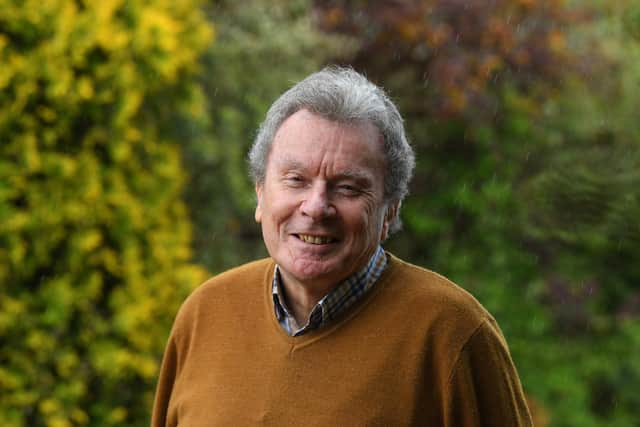

Advertisement
Hide AdAdvertisement
Hide AdIt also marked the end of more than 20 years as a councillor – initially at Preston City Council – which itself followed over 30 years rising through the ranks of non-political officer roles at councils across the country.
He reached the top in both of his incarnations in local government and while his early career took him a long way from Lancashire he believes his roots in the county served him well by helping forge the straight-talking style that it is probably fair to say has come to define him.
“The people of Lancashire – especially in the east where I come from – don’t call a spade a digging implement. We tell it as it is and tend not to suffer fools.
“Some people don’t always like that, but one of the golden rules I tell other people when they first come in [to politics] is just be yourself – don’t try to be something that you’re not. I am what I am and what you see and hear is what you get.”
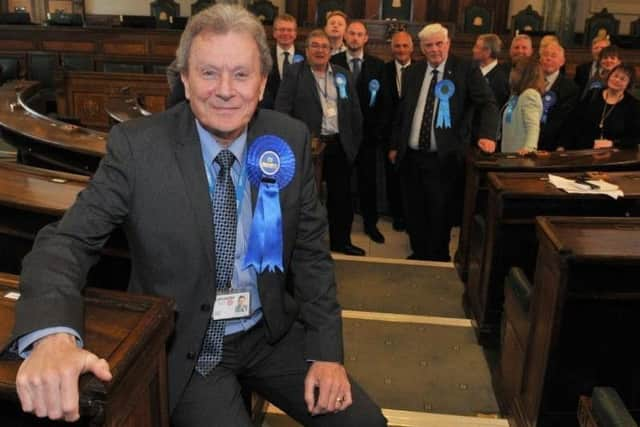

Advertisement
Hide AdAdvertisement
Hide AdHis family moved to Rawtenstall shortly after he passed the 11 plus exam, putting the grammar school boy on the path to his first job in the world of local authority finance at Rawtenstall Borough Council, where he was given the wordy title of “trainee chartered municipal treasurer”. His career options had been either law or finance, but he was relatively indifferent about the field in which he would practice either.
That all changed after being imbued with the principles of the public sector at Rawtenstall, training under a group of Second World War veterans whom he remembers thinking were “the bee’s knees” and “instilled in me what local government and public service was about”.
Moves followed to authorities including Coventry, Kirklees and Plymouth, where he was city treasurer and chamberlain, before the opportunity arose in 1993 to return to Lancashire, which had always been his long-term aim.
His homecoming was to the top job of chief executive at what was then Preston Borough Council and marked the start of a synonymous relationship with the county’s political scene that would endure to this day.
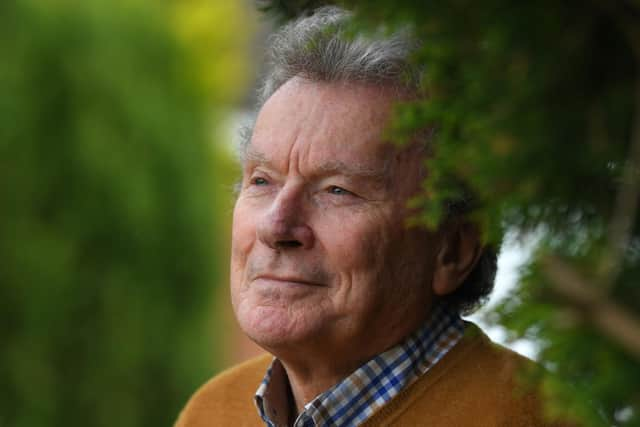

Advertisement
Hide AdAdvertisement
Hide AdHis arrival coincided with the Operation Angel police investigation into allegations of corruption involving land deals in the then town in the 1980s. While he says he achieved what he set out to during his three-year tenure, he claims to have been in a “very vulnerable position, because the [ruling] Labour group didn’t want me”.
He also recalls numerous “pitch battles” with the authority’s self-proclaimed socialist leader Valerie Wise.
“In effect, she wanted to be chief executive and for me to be the chief administrator. On one occasion, I came back from holiday and she said she was suspending me.
“You can only suspend a [council] chief executive for a month unless you bring some charges against them – and they couldn’t, because I hadn’t done anything wrong. So after a month, I just walked back into the town hall, much to their surprise.”
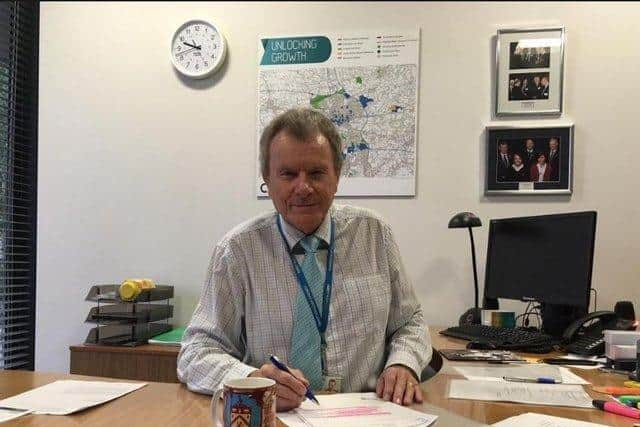

Advertisement
Hide AdAdvertisement
Hide AdHe says his later decision to leave was “under my own terms”, but acknowledges that the situation was “seriously getting to me”.
His pivot to becoming a direct player in the political fray was far from pre-planned and came as a result of some gentle persuasion from two neighbours who were already Tory councillors. And so in 1999, he ended up in the unusual – and possibly unique – position of reappearing as an elected member at the authority at which he had previously held the most senior paid role.
His association with the county council began six years later after it was suggested that he stand as a “paper candidate” – one not regarded as having much chance of winning – in what was deemed a fairly safe Liberal Democrat seat.
“I don’t do being a paper candidate – if I do something, I do it properly,” he says, an attitude which brought him an unexpected victory. He triggered a much more significant political earthquake four years later, when, just 12 months after becoming leader of the Tory opposition group, he steered them to a surprise win at the county council elections, ending a 28-year run of Labour majority control.
Advertisement
Hide AdAdvertisement
Hide AdSo having gone from foremost civil servant at one Lancashire council to leading politician at another, how did he resist the temptation to visit the same fate on chief executives at County Hall that he says befell him at Preston – namely, of being a political leader who wanted a foot in both camps? Pretty easily, he claims.
“I just recognised that it would have been improper – and certainly not morally right – for me to try and impose my will on somebody to get them to make a decision different from what they wanted to do. [Because] if the wheels came off, it would have been their responsibility and not mine.”
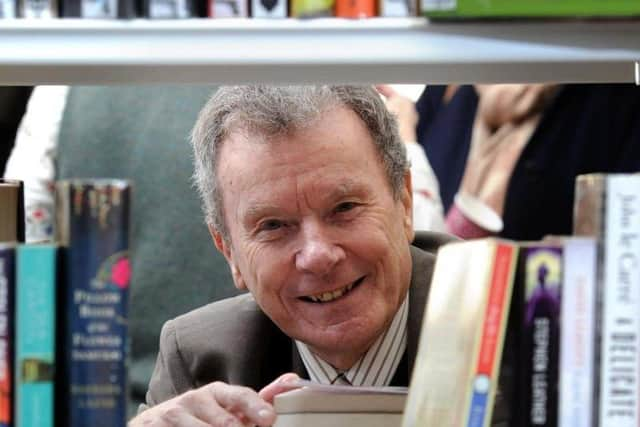

After losing control in 2013 after one term – a defeat he blames on a rising UKIP wave at the time – he successfully fought to stay in charge of the Tory group in spite of a challenge from within.
While being awarded a CBE for services to local government that same year rates as the proudest moment of his career, the policy achievement from which he derives most satisfaction is possibly not the politically-charged example one might expect – although he clearly hopes it will nevertheless have left a legacy. And so it is that he cites the refurbishment of a once financially struggling council-owned outdoor education facility in the Lake District.
Advertisement
Hide AdAdvertisement
Hide Ad“We invested in it and it’s now an absolutely fantastic centre – and that in itself is something I’m really proud of. But we also made sure that some of the rooms were adaptable for children with profound physical disabilities and some of them can be converted into family units so that Mum and Dad and perhaps another sibling can go [too] – and that’s one of my real achievements,” he says.
And then a perhaps surprising admission from someone who has played the politics of potholes with the best of them.
“It grieves me that people moan like mad about the state of the roads. Yes, we have to get the roads right and we have put more money into it – but if we can’t look after those fellow citizens, be they young, middle-aged or old, who can’t look after themselves, then we might as well all go home.”
His second term in charge at County Hall from 2017 saw the council having to confront the financial challenge facing many local authorities after seven years of austerity. In attempting to clear a £200m deficit, he accepts that difficult decisions had to be made and deploys the allegory he has used many times in the past comparing the council’s coffers to those of any Lancashire family and the need to “cut your suit according to your cloth”.
Advertisement
Hide AdAdvertisement
Hide AdHowever, when it comes to the savings made over the last four years he admits only to some miscommunications rather than any mis-steps – and challenges his political opponents to point to the swingeing cuts of which they often accuse him.
“Some of the [decisions] perhaps we didn’t put across as well as we could have done. And some of the reductions we made in the preventive services [such as drug, alcohol and obesity schemes] were real cuts and I make no bones about that, but others we tackled [the issues] in a different way.
“You have got to decide which are your highest priorities…and make sure that you’ve got enough money to do the things you regard as of the highest importance.”
Pressed about a controversial 2019 plan to make £1.1m in savings on the Breaktime respite service for children with special needs – which sparked the threat of a legal challenge from some families – he again alights upon the presentation of the policy rather than any problem with the substance.
Advertisement
Hide AdAdvertisement
Hide Ad“The intention was never to scrap it altogether – it was costing a lot more than it should and people were using it who weren’t entitled to. Perhaps we could have handled the publicity a bit better, but…we just wanted to make it more efficient and effective – and now it is and we have put [in] an extra £1.4m in per annum.
“And of course we were determined to reopen the libraries, the museums and put the bus services back [after reductions between 2013 and 2017].
“I think it’s fair to say that, but for Covid, we would have sorted the remaining inherent deficit [currently forecast to be £48m by 2023/24]. But the county council is in a situation where it’s got £150m in reserves – so I think it’s fair to say I’ve left it in a better position than it was in 2017.”
He adds that politicians are “just like everyone else” in looking back and contemplating whether they could have done things “slightly differently”.
Advertisement
Hide AdAdvertisement
Hide AdWhile he says that there would not be enough room here to capture a full list of regrets over the course of nearly 60 years of working life – and so deftly sidesteps naming any – he is resolute in having no second thoughts about one of the most controversial moments of his second term in office: a reconfiguration of the county council’s senior management structure, which led to the departure of top figures and resulted in council meetings as tense as any that the walls of County Hall are likely to have witnessed during its 130-year history.
“It was the single biggest decision that we took, without which some of the other decisions – if not most of them – would not have been possible,” he says.
As a local government veteran, he hopes that the part the sector played during the pandemic will now get it the “recognition it deserves” from central government.
A true blue Tory he may be, but he has often been forthright in his opinions when he concludes that his party’s national government needs a prod in order to produce the best results for Lancashire. He has previously bemoaned the repeated delays to the promised overhaul of local authority funding, saying that the current system had been allowed to “get into a bit of a mess”.
Advertisement
Hide AdAdvertisement
Hide AdHe also clashed with Michael Gove, during the latter’s time as education secretary, when he castigated the “bully boy tactics” of the Department for Education over its attempts to encourage more of the county’s schools to leave local authority control and become academies – and its characterisation of them as underperforming.
Looking to the future, the former county leader’s hope for Lancashire is that it finally secures the devolution deal and streamlined local government structure that he believes is the only way to prevent it being “left behind”.
“I know this will anger many of my colleagues in the district councils, but the two-tier system has outlived its purpose – it’s inefficient, ineffective and we need to bring it into the twenty-first century,” he says, noting that Lancashire will soon be surrounded by areas with devolved powers with Cumbria now on the road to getting a deal and Greater Manchester and Merseyside long having had elected mayors.
As he embarks on his retirement, he also still awaits the outcome of a police investigation into the One Connect outsourcing joint venture between the county council and BT, which was established during his first period as leader in 2011. Two years later, it was at the centre of a fraud probe – known as Operation Sheridan – in relation to the awarding of a fleet maintenance contract.
Advertisement
Hide AdAdvertisement
Hide AdTold by the police that they had “determined my innocence” on that front in March 2016, he was nevertheless arrested the following year – shortly after the Tories retook control at County Hall and days before he was officially reinstalled as leader – on suspicion of conspiracy to pervert the course of justice and witness intimidation.
A file on those allegations – and in relation to seven other individuals investigated under Operation Sheridan – was passed to the Crown Prosecution Service for consideration in August 2018, but no decision has yet been made.
On that matter, Geoff Driver – who has never been charged with any offence – said he is limited in the comment he can make, but added: “I’m entirely innocent of what the police have accused me of and it’s time it was brought to a conclusion – one way or the other.”
He says he decided upon his re-election in 2017 that he would stand down this year – although he admits that he may have been persuaded to carry on for “another year or two” if the county council did not operate on a four-year electoral cycle. The plan had initially been for him to move aside last year to allow a new Tory leader to establish themselves before the elections, but he remained in charge for the sake of “consistency” once the pandemic struck.
Advertisement
Hide AdAdvertisement
Hide AdPerhaps like many politicians he has a public and a private persona – and says his parish priest once commented that those who knew him only in one arena might not recognise him in the other, something which he took as “a compliment”.
“I’m a strong family man, love my grandkids [two girls, with a third grandchild on the way] – and they just know me as Grandpa.”
Meanwhile, for someone not renowned for wavering in his political convictions or his own decision-making ability, he seems remarkably content, in his final reflection on a lifetime in local government, for others to be the judge of his contribution to public life.
“Depending on people’s view of what I’ve achieved or not achieved, all good – or bad – things must come to an end,” he grins.
